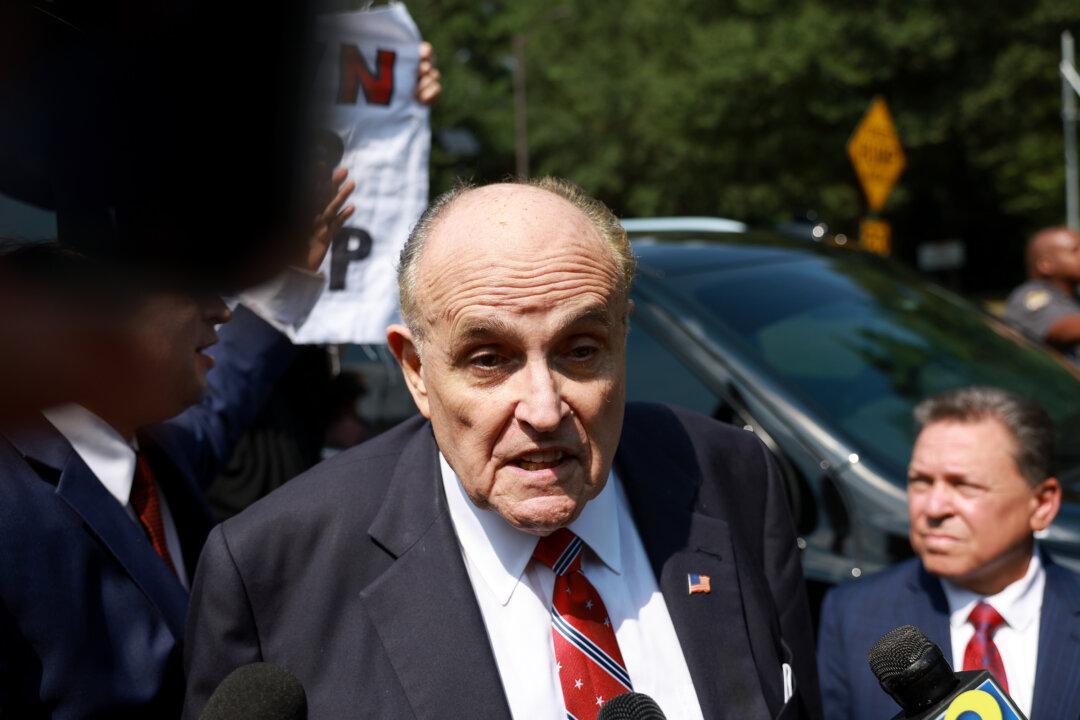Former New York City Mayor Rudy Giuliani goes on trial before jury Dec. 11 in Washington in a case brought against him by former Georgia election worker Ruby Freeman and her daughter, after a judge rejected his request for a bench trial in an order issued late on Sunday, Dec. 3.
U.S. District Court Judge Beryl Howell has already ruled Mr. Giuliani liable for defamation, and the upcoming trial will deal with how much he owes the election workers in damages.





